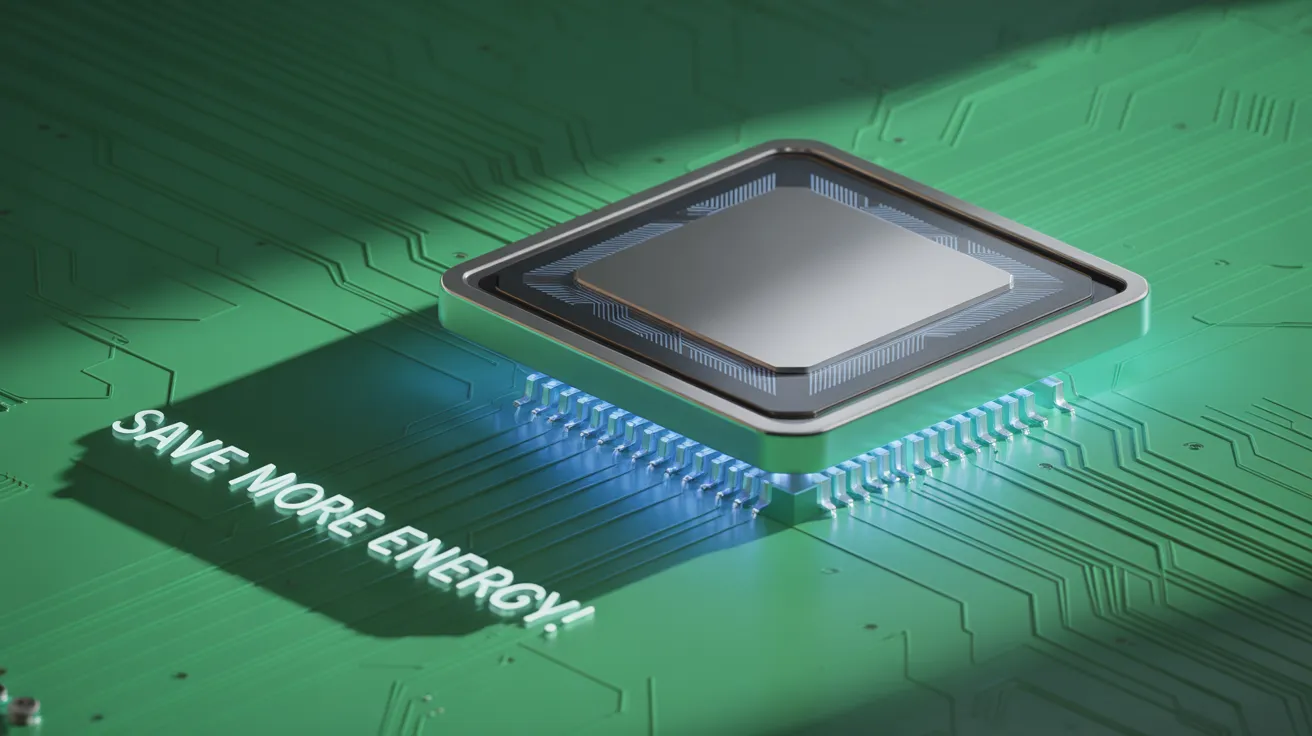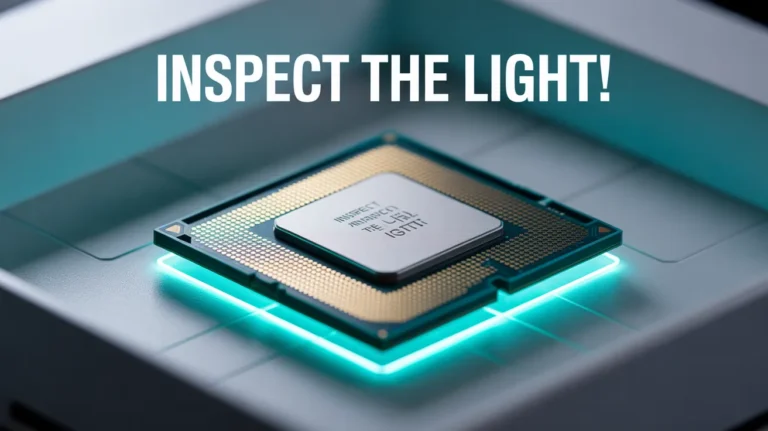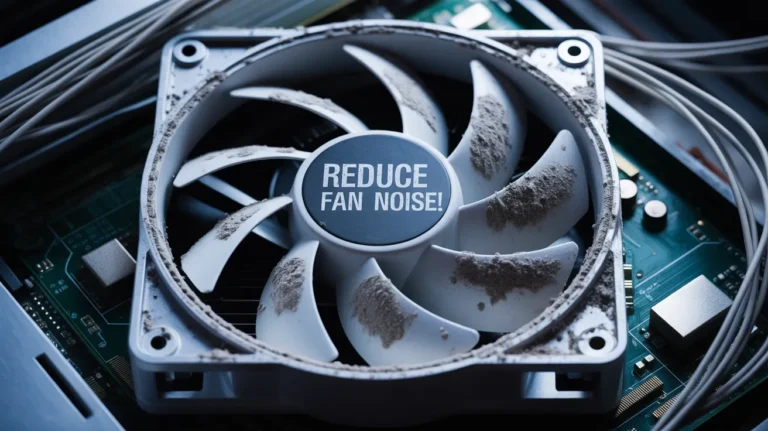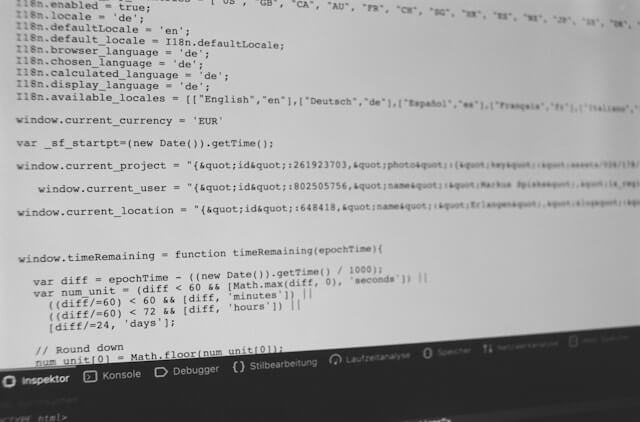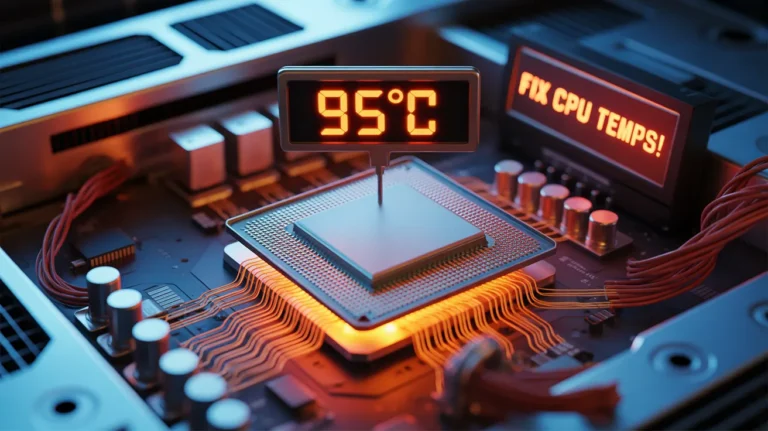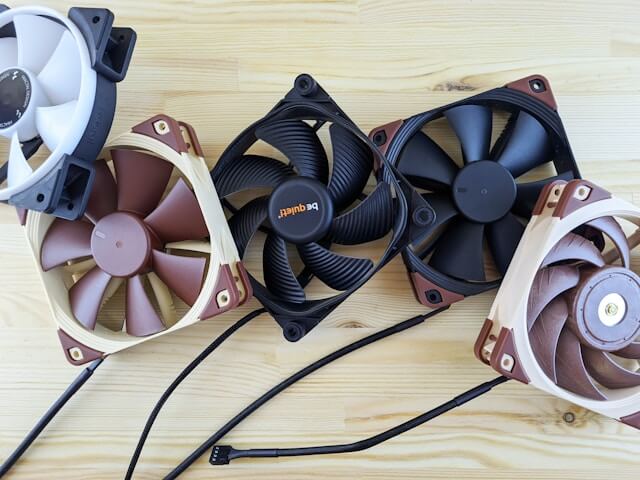How much power does a CPU use? Save More Energy!
A CPU usually uses between 45 and 125 watts of power, depending on the model and workload. Light tasks, such as browsing, use less power, while gaming or editing can use more. Laptop CPUs use even less, around 15 to 45 watts.
In this guide, we will explain CPU power usage in simple words so you understand what normal is, what high is, and how to manage it the right way.
Also Read: Is the CPU on the motherboard? Complete Guide 2025!
Why Is Power efficiency critical for a CPU?
Power efficiency is very important for a CPU because it helps reduce electricity usage, which is good for both the environment and your electricity bill. A power-efficient CPU produces less heat, so your computer stays cooler and quieter. In laptops and mobile devices, it also means the battery lasts longer, giving you more usage time without charging.
Also Read: How Much CPU Usage is Normal? Find Out What’s Normal
Why are CPU different in Power Usage?
CPU use different amounts of power because they are built for different types of work. Powerful CPU, like those used in gaming or video editing, need more energy to run fast. On the other hand, a simple CPU made for web browsing or basic tasks uses less power.
Also Read: Can I use a CPU cable for a GPU? Complete guide to CPU!
How CPU Power Consumption is Measured
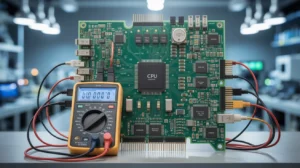
CPU power is measured in watts W. It shows how much electricity the CPU uses while working. Tools like HWMonitor or software from the motherboard maker can show live power usage. Higher watts mean the CPU is using more energy.
Also Read: Does Parsing CSV Files Hit the CPU Hard? Find Out Now
How CPU Power Draw Impacts Electricity Bills
If a CPU uses more power, it increases your electricity bill. Powerful CPUs that run all day use more energy. But energy-efficient CPUs use less power, so they help save money over time.
Also Read: Can I use 70% alcohol to clean the CPU? Use Alcohol Right!
What Role Does Clock Speed Play in CPU Power Consumption?
Clock speed means how fast a CPU works. Higher clock speed makes the CPU faster, but it also uses more power. So, when the clock speed goes up, the CPU gets hotter and needs more electricity.
Also Read: Can a CPU Be Too Cold – A Complete Guide for 2025!
How Overclocking Affects CPU Power Consumption
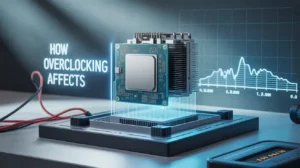
Overclocking makes the CPU run faster than normal. This gives more performance but also uses more power. It can make the CPU very hot and increase electricity use. That’s why good cooling is important when overclocking.
Also Read: Is 150 Degrees Fahrenheit Hot for a CPU? [Quick Answer]
How to Measure CPU Power Consumption
To measure CPU power consumption, use a power meter to check your computer’s total power. Use software like HWMonitor to see CPU power in watts. Check the CPU’s TDP in its manual or website. Test the power with a heavy program and compare it to idle. Advanced users can use a multimeter to calculate power.
Also Read: Is 4000 RPM Too Low for a CPU Fan? Explained
What Are the Power Requirements for a Budget CPU?
To understand the power requirements for a budget CPU, here are the key points in simple English:
- Low TDP Thermal Design Power: Budget CPUs, like Intel Celeron, Pentium, or AMD Athlon, usually have a TDP of 35W to 65W. This means they use less power compared to high-end CPUs.
- Power Supply Unit PSU: A 300W to 400W PSU is enough for a system with a budget CPU, assuming no high-power graphics card or other demanding components.
- Idle Power Usage: At idle, budget CPUs use around 5W to 15W, depending on the model and workload.
- Full Load Power: Under heavy tasks like gaming or video editing, budget CPUs may use 30W to 60W.
- Cooling Needs: Budget CPUs need basic cooling, like a stock cooler or a simple aftermarket cooler, as they produce less heat.
- Motherboard Compatibility: Ensure the motherboard supports the CPU’s power needs. Most budget motherboards handle low-power CPUs without issues.
- Energy Efficiency: Budget CPUs are designed to be energy-efficient, reducing electricity costs for basic tasks like browsing or office work.
Also Read: Is 50 Degrees Celsius Hot for a CPU? A Detailed Guide
How to Monitor CPU Power Consumption
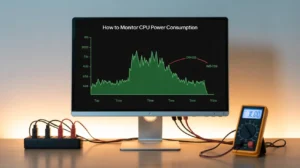
You can check CPU power use with free tools like HWMonitor, Core Temp, or software from your motherboard brand. These tools show how much power in watts your CPU is using in real time. It helps you keep your system cool and save energy.
Also Read: What should CPU voltage be? Stay Within Limits!
Do High-End Gaming CPU Use More Power Than Regular CPU?
Yes, high-end gaming CPUs use more power than regular CPUs. They are made for heavy tasks like gaming and video editing, so they run faster and need more energy. That’s why they also need better cooling.
Also Read: When to upgrade the CPU? Complete Guide 2025!
FAQs:
1. What factors increase CPU power usage the most?
Heavy tasks like gaming, video editing, and multitasking use more CPU power. High clock speed, more cores, and overclocking also increase power usage.
2. How does CPU power usage affect overall system performance?
If a CPU uses more power, it can give faster performance, but it also creates more heat. Too much heat can slow the system down or cause crashes.
Also Read: How much power does a CPU use? Check Power Usage!
3. Can CPU power usage affect battery life in laptops?
Yes. If your CPU uses more power, your laptop battery will drain faster, especially during gaming or heavy work.
4. Is a higher CPU always equal to a higher power draw?
No, a higher CPU doesn’t always mean more power draw. Newer CPUs can be faster but use less power because they are more efficient.
5. Do background apps increase CPU power use?
Yes. Many background apps keep the CPU busy, which increases power use and can make your system slower or hotter.
Also Read: How to check if the CPU is overclocked- Check CPU Speed!
Conclusion:
CPU power usage depends on how powerful the CPU is and what tasks it’s doing. Heavy work, like gaming or editing, uses more power, while light tasks use less. Power-efficient CPUs save battery and electricity. By understanding CPU power draw and using tools to monitor it, you can keep your system cool, save energy, and make your PC work better.
Also Read: What is high CPU temp? Check CPU Temps!

